EMS
-
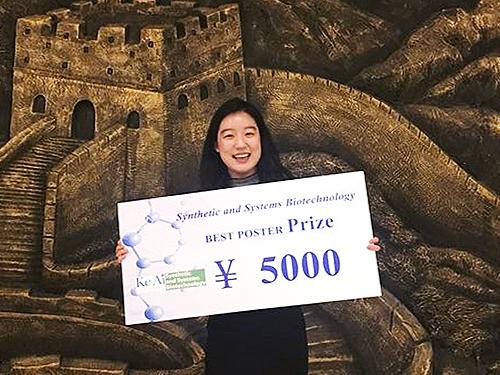 In Jin Cho Earned the Best Poster Prize at ME Summit 2017
In Jin Cho, a Ph.D. student in the Department of Chemical and Biomolecular Engineering at KAIST received the best poster prize at the International Metabolic Engineering Summit 2017 held on October 24 in Beijing, China.
The International Metabolic Engineering Summit is a global conference where scientists and corporate researchers in the field of metabolic engineering present their latest research outcomes and build networks.
At this year’s summit, about 500 researchers from around the world participated in active academic exchanges, including giving keynote speeches and presenting posters.
During the poster session, the summit selects one person for the KeAi-synthetic and Systems Biotechnology Poster Award, two for Microbial Cell Factories Poster Awards, and three for Biotechnology Journal Poster Awards among the posters presented by graduate students, post-doctoral fellows and researchers. Cho received the KeAi-synthetic and Systems Biotechnology Poster Award. Her winning poster is on the biotransformation of p-xylene to terephthalic acid using engineered Escherichia coli.
Terephthalic acid is generally produced by p-xylene oxidation; however, this process requires a high temperature and pressure as well as a toxic catalyst during the reaction process.
Cho and Ziwei Luo, a Ph.D. student at KAIST, co-conducted the research and developed a successful biological conversion process. Compared to the existing chemical process, it does not require a high temperature and pressure; and it is environmentally friendly with a relatively high conversion rate of approximately 97%.
Cho’s advisor, Distinguished Professor Sang Yup Lee said, “Further research on glucose-derived terephthalic acid will enable us to produce biomass-based eco-friendly terephthalic acid through engineered Escherichia coli.”
2017.10.31 View 11422
In Jin Cho Earned the Best Poster Prize at ME Summit 2017
In Jin Cho, a Ph.D. student in the Department of Chemical and Biomolecular Engineering at KAIST received the best poster prize at the International Metabolic Engineering Summit 2017 held on October 24 in Beijing, China.
The International Metabolic Engineering Summit is a global conference where scientists and corporate researchers in the field of metabolic engineering present their latest research outcomes and build networks.
At this year’s summit, about 500 researchers from around the world participated in active academic exchanges, including giving keynote speeches and presenting posters.
During the poster session, the summit selects one person for the KeAi-synthetic and Systems Biotechnology Poster Award, two for Microbial Cell Factories Poster Awards, and three for Biotechnology Journal Poster Awards among the posters presented by graduate students, post-doctoral fellows and researchers. Cho received the KeAi-synthetic and Systems Biotechnology Poster Award. Her winning poster is on the biotransformation of p-xylene to terephthalic acid using engineered Escherichia coli.
Terephthalic acid is generally produced by p-xylene oxidation; however, this process requires a high temperature and pressure as well as a toxic catalyst during the reaction process.
Cho and Ziwei Luo, a Ph.D. student at KAIST, co-conducted the research and developed a successful biological conversion process. Compared to the existing chemical process, it does not require a high temperature and pressure; and it is environmentally friendly with a relatively high conversion rate of approximately 97%.
Cho’s advisor, Distinguished Professor Sang Yup Lee said, “Further research on glucose-derived terephthalic acid will enable us to produce biomass-based eco-friendly terephthalic acid through engineered Escherichia coli.”
2017.10.31 View 11422 -
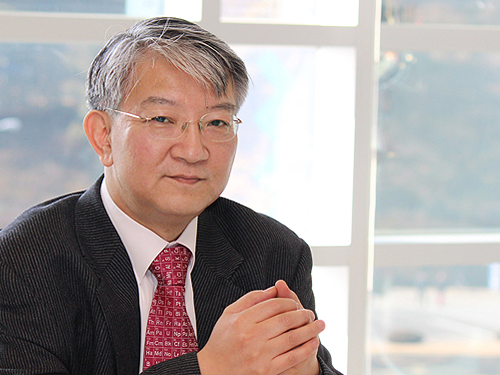 Distinguished Professor Lee Named International Fellow of the CAS
Distinguished Professor Sang Yup Lee from the Department of Chemical and Biomolecular Engineering at KAIST was awarded the title of distinguished professor and international fellow from the Chinese Academy of Sciences (CAS), and honorary professor from its affiliated organization the Tianjin Institute of Industrial Biotechnology (TIB).
The CAS recognized Distinguished Professor Lee for his significant contributions to biotechnology. He has made significant pioneering academic achievements in the area of systems metabolic engineering, which produces useful chemicals from microorganisms. Not only did he develop the first and best source technology in that field, but also came out with processes for the production of biofuel and environmentally-friendly chemicals.”
As a global leader in systems metabolic engineering, Distinguished Professor Lee has also been appointed as an honorary professor at Jiangnan University in Wuxi, China.
Distinguished Professor Lee was listed in the ‘Top 20 Translational Researchers of 2014’ selected by the renowned international journal Nature Biotechnology. Moreover, he was the first Asian recipient of the James E. Bailey Award in 2016 and Marvin J. Johnson Award in 2012, which are given to scholars in the field of biotechnology.
He is also one of 13 global scientists who are foreign members of the renowned academic societies the National Academy of Engineering and the National Academy of Sciences in the US. Furthermore, he received the ‘2017 Korea Best Scientist Award’ from the president of Korea in July. Finally, his founding field, systems metabolic engineering, was chosen as one of the ‘Top 10 Emerging Technologies of 2016’ by the World Economic Forum.
The Chinese Academy of Sciences, established in November 1949, is an academic organization that carries out research on basic sciences and natural sciences in China. It defined its science and technology system to include the fields of basic sciences, natural sciences, and high technology. While having a base in Beijing, its branch academies are located in 12 main cities along with 117 affiliates and 100 national key labs.
2017.10.26 View 13194
Distinguished Professor Lee Named International Fellow of the CAS
Distinguished Professor Sang Yup Lee from the Department of Chemical and Biomolecular Engineering at KAIST was awarded the title of distinguished professor and international fellow from the Chinese Academy of Sciences (CAS), and honorary professor from its affiliated organization the Tianjin Institute of Industrial Biotechnology (TIB).
The CAS recognized Distinguished Professor Lee for his significant contributions to biotechnology. He has made significant pioneering academic achievements in the area of systems metabolic engineering, which produces useful chemicals from microorganisms. Not only did he develop the first and best source technology in that field, but also came out with processes for the production of biofuel and environmentally-friendly chemicals.”
As a global leader in systems metabolic engineering, Distinguished Professor Lee has also been appointed as an honorary professor at Jiangnan University in Wuxi, China.
Distinguished Professor Lee was listed in the ‘Top 20 Translational Researchers of 2014’ selected by the renowned international journal Nature Biotechnology. Moreover, he was the first Asian recipient of the James E. Bailey Award in 2016 and Marvin J. Johnson Award in 2012, which are given to scholars in the field of biotechnology.
He is also one of 13 global scientists who are foreign members of the renowned academic societies the National Academy of Engineering and the National Academy of Sciences in the US. Furthermore, he received the ‘2017 Korea Best Scientist Award’ from the president of Korea in July. Finally, his founding field, systems metabolic engineering, was chosen as one of the ‘Top 10 Emerging Technologies of 2016’ by the World Economic Forum.
The Chinese Academy of Sciences, established in November 1949, is an academic organization that carries out research on basic sciences and natural sciences in China. It defined its science and technology system to include the fields of basic sciences, natural sciences, and high technology. While having a base in Beijing, its branch academies are located in 12 main cities along with 117 affiliates and 100 national key labs.
2017.10.26 View 13194 -
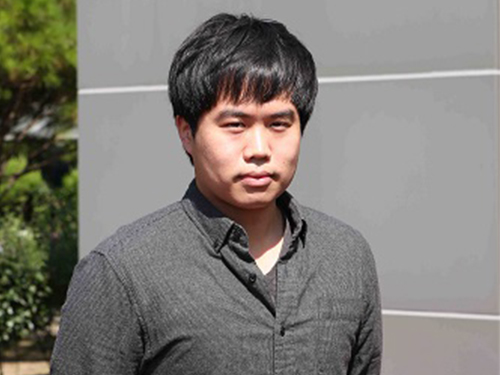 Sangeun Oh Recognized as a 2017 Google Fellow
Sangeun Oh, a Ph.D. candidate in the School of Computing was selected as a Google PhD Fellow in 2017. He is one of 47 awardees of the Google PhD Fellowship in the world.
The Google PhD Fellowship awards students showing outstanding performance in the field of computer science and related research. Since being established in 2009, the program has provided various benefits, including scholarships worth $10,000 USD and one-to-one research discussion with mentors from Google.
His research work on a mobile system that allows interactions among various kinds of smart devices was recognized in the field of mobile computing. He developed a mobile platform that allows smart devices to share diverse functions, including logins, payments, and sensors. This technology provides numerous user experiences that existing mobile platforms could not offer. Through cross-device functionality sharing, users can utilize multiple smart devices in a more convenient manner. The research was presented at The Annual International Conference on Mobile Systems, Applications, and Services (MobiSys) of the Association for Computing Machinery in July, 2017.
Oh said, “I would like to express my gratitude to my advisor, the professors in the School of Computing, and my lab colleagues. I will devote myself to carrying out more research in order to contribute to society.”
His advisor, Insik Shin, a professor in the School of Computing said, “Being recognized as a Google PhD Fellow is an honor to both the student as well as KAIST. I strongly anticipate and believe that Oh will make the next step by carrying out good quality research.”
2017.09.27 View 13873
Sangeun Oh Recognized as a 2017 Google Fellow
Sangeun Oh, a Ph.D. candidate in the School of Computing was selected as a Google PhD Fellow in 2017. He is one of 47 awardees of the Google PhD Fellowship in the world.
The Google PhD Fellowship awards students showing outstanding performance in the field of computer science and related research. Since being established in 2009, the program has provided various benefits, including scholarships worth $10,000 USD and one-to-one research discussion with mentors from Google.
His research work on a mobile system that allows interactions among various kinds of smart devices was recognized in the field of mobile computing. He developed a mobile platform that allows smart devices to share diverse functions, including logins, payments, and sensors. This technology provides numerous user experiences that existing mobile platforms could not offer. Through cross-device functionality sharing, users can utilize multiple smart devices in a more convenient manner. The research was presented at The Annual International Conference on Mobile Systems, Applications, and Services (MobiSys) of the Association for Computing Machinery in July, 2017.
Oh said, “I would like to express my gratitude to my advisor, the professors in the School of Computing, and my lab colleagues. I will devote myself to carrying out more research in order to contribute to society.”
His advisor, Insik Shin, a professor in the School of Computing said, “Being recognized as a Google PhD Fellow is an honor to both the student as well as KAIST. I strongly anticipate and believe that Oh will make the next step by carrying out good quality research.”
2017.09.27 View 13873 -
 Research Center for Smart Submerged Floating Tunnel Systems Opens
(Distinguished guests including President Shin (fourth from the right) and Director Lee (third from left) at the opening ceremony)
The Research Center for a Smart Submerged Floating Tunnel Systems was recently established at KAIST with the purpose of taking the lead in developing fundamental and applicable technology for submerged floating tunnels as well as fostering creative and talented people. Haeng-Ki Lee, a professor in the Department of Civil & Environmental Engineering at KAIST is heading the center.
KAIST held its opening ceremony on September 7, 2017 in the Applied Engineering Building located on the main campus.
Distinguished guests, including KAIST president Sung-Chul Shin, the President of the Korea Institute of Ocean Science and Technology Gi-Hoon Hong, the President of the Korean Society of Civil Engineering Young-Seok Park, and the Director in the Division of Engineering at the National Research Foundation of Korea Joong-Kon Park attended the ceremony.
The National Research Foundation of Korea provides Engineering Research Center (ERC) projects which find and foster groups with outstanding research performance in a field of engineering. The projects support these groups so that they can strengthen their global competitiveness while enhancing national competence in basic research.
The ‘Research Center for Smart Submerged Floating Tunnel Systems’ was selected as one of the ERC projects in 2017. For the next seven years, the research center will work to develop a submerged floating tunnel system resistant depths greater than 100 meters.
To achieve its goal, the center has defined crucial research topics including: i) a structural analysis program and integrated design technology specific for submerged floating tunnel systems, ii) high-durability marine construction materials and submerged construction integrated systems, and iii) safety and maintenance integrated technology for smart submerged floating tunnel systems.
The ‘Research Center for Smart Submerged Floating Tunnel Systems’ will devote itself to developing a variety of fundamental and applicable technology that will be leading global maritime construction. Moreover, it will concentrate on fostering professional research manpower in related areas.
The Director of the Center Lee said, “The center will cooperate with KAIST researchers who are experts in various fields, including structures, materials, construction, and maritime research. Based on this collaboration, the center will contribute to achieving autonomous technologies by developing fundamental and applicable technology related with submerged floating tunnel systems. It will also take the role of a leading global research hub in the field of submerged floating tunnels as well as construction technologies.”
2017.09.07 View 10909
Research Center for Smart Submerged Floating Tunnel Systems Opens
(Distinguished guests including President Shin (fourth from the right) and Director Lee (third from left) at the opening ceremony)
The Research Center for a Smart Submerged Floating Tunnel Systems was recently established at KAIST with the purpose of taking the lead in developing fundamental and applicable technology for submerged floating tunnels as well as fostering creative and talented people. Haeng-Ki Lee, a professor in the Department of Civil & Environmental Engineering at KAIST is heading the center.
KAIST held its opening ceremony on September 7, 2017 in the Applied Engineering Building located on the main campus.
Distinguished guests, including KAIST president Sung-Chul Shin, the President of the Korea Institute of Ocean Science and Technology Gi-Hoon Hong, the President of the Korean Society of Civil Engineering Young-Seok Park, and the Director in the Division of Engineering at the National Research Foundation of Korea Joong-Kon Park attended the ceremony.
The National Research Foundation of Korea provides Engineering Research Center (ERC) projects which find and foster groups with outstanding research performance in a field of engineering. The projects support these groups so that they can strengthen their global competitiveness while enhancing national competence in basic research.
The ‘Research Center for Smart Submerged Floating Tunnel Systems’ was selected as one of the ERC projects in 2017. For the next seven years, the research center will work to develop a submerged floating tunnel system resistant depths greater than 100 meters.
To achieve its goal, the center has defined crucial research topics including: i) a structural analysis program and integrated design technology specific for submerged floating tunnel systems, ii) high-durability marine construction materials and submerged construction integrated systems, and iii) safety and maintenance integrated technology for smart submerged floating tunnel systems.
The ‘Research Center for Smart Submerged Floating Tunnel Systems’ will devote itself to developing a variety of fundamental and applicable technology that will be leading global maritime construction. Moreover, it will concentrate on fostering professional research manpower in related areas.
The Director of the Center Lee said, “The center will cooperate with KAIST researchers who are experts in various fields, including structures, materials, construction, and maritime research. Based on this collaboration, the center will contribute to achieving autonomous technologies by developing fundamental and applicable technology related with submerged floating tunnel systems. It will also take the role of a leading global research hub in the field of submerged floating tunnels as well as construction technologies.”
2017.09.07 View 10909 -
 KAIST Partners with Technion and Hyundai Motors for Future Mobility Technology Development
(KAIST Associate Vice President of Research Joung-Ho Kim(third from left) poses with Technion President Pereta Lavie and CTO Tae Won Im of Hyundai Motors)
KAIST has partnered with the Israel Institute of Technology, Technion, and Hyundai Motors to take the lead in the field of future mobility technologies. The three parties signed a consortium of global alliance for future mobility partnership at Technion on Sept. 5. KAIST Associate Vice President of Research Kim Joung-Ho, Hyundai Motor’s Central Advanced Research and Engineering CTO Tae Won Lim, and Technion President Peretz Lavie signed the MOU.
The three parties agreed to conduct joint research on hi-tech mobility areas including self-driving systems, cyber security, and AI in mobility. With the signing of the consortium, KAIST's technology in AI, semiconductors, and autonomous cars will produce synergy with Technion’s connected car solutions, advancing Hyundai Motor's competitiveness in the future mobility market.
In addition to the consortium, the three parties will set-up a startup consulting committee, which will provide consulting services for nurturing venture startups with creative ideas and outstanding technological prowess in their host countries.
2017.09.07 View 7214
KAIST Partners with Technion and Hyundai Motors for Future Mobility Technology Development
(KAIST Associate Vice President of Research Joung-Ho Kim(third from left) poses with Technion President Pereta Lavie and CTO Tae Won Im of Hyundai Motors)
KAIST has partnered with the Israel Institute of Technology, Technion, and Hyundai Motors to take the lead in the field of future mobility technologies. The three parties signed a consortium of global alliance for future mobility partnership at Technion on Sept. 5. KAIST Associate Vice President of Research Kim Joung-Ho, Hyundai Motor’s Central Advanced Research and Engineering CTO Tae Won Lim, and Technion President Peretz Lavie signed the MOU.
The three parties agreed to conduct joint research on hi-tech mobility areas including self-driving systems, cyber security, and AI in mobility. With the signing of the consortium, KAIST's technology in AI, semiconductors, and autonomous cars will produce synergy with Technion’s connected car solutions, advancing Hyundai Motor's competitiveness in the future mobility market.
In addition to the consortium, the three parties will set-up a startup consulting committee, which will provide consulting services for nurturing venture startups with creative ideas and outstanding technological prowess in their host countries.
2017.09.07 View 7214 -
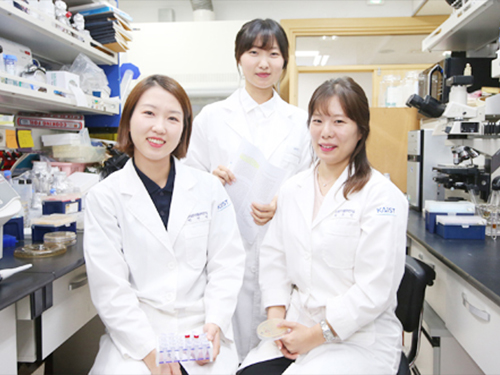 KAIST Researchers Receive Awards at the 13th Asian Congress on Biotechnology
(From left: Seon Young Park, Dr. So Young Choi, and Yoojin Choi)
Researchers in the laboratory of KAIST Distinguished Professor Sang Yup Lee from the Department of Chemical and Biomolecular Engineering swept awards at the 13th Asian Congress on Biotechnology held in Thailand last month. The conference awarded a total of eight prizes in the areas of best research and best poster presentation. This is an exceptional case in which members of one research team received almost half of the awards at an international conference.
Dr. So Young Choi received the Best Research Award, while Ph.D. candidates Yoojin Choi and Seon Young Park each received the Best Poster Presentation Award at the conference held in Khon Kaen, Thailand from July 23 to 27.
The Asian Congress on Biotechnology is an international conference in which scientists and industry experts in Asia and from around the world gather to present recent research findings in the field of biotechnology. At the conference, around 400 researchers in biotechnology from 25 countries, including Korea, gathered to present and discuss various research findings under the theme of “Bioinnovation and Bioeconomy.”
Distinguished Professor Sang Yup Lee attended the conference to give the opening plenary lecture on the topic of ‘Systems Strategies in Biotechnology.’ Professor Lee announced, “I have attended international conferences with students for the last 20 years, but this is the first in which my team received three awards at an international conference that only honors a total of eight awards, three for Best Research and five for Best Presentation.”
Dr. Choi presented research results on poly (lactate-co-glycolate) (PLGA) synthesis through a biological method using micro-organisms and received the Best Research Award. PLGA is a random copolymer of DL-lactic and glycolic acids and is a biopolymer widely used for biomedical applications. PLGA is biodegradable, biocompatible, and nontoxic, and thus has been approved by the US Food and Drug Administration (FDA) for its use in implants, drug delivery, and sutures.
Dr. Choi’s research was deemed to be innovative for synthesizing PLGA from glucose and xylose in cells through metabolic engineering of E.Coli. Dr. Choi received her Ph.D. under the supervision of Distinguished Professor Lee this February and is currently conducting post-doc research.
Ph.D. candidate Choi presented her research on the use of recombinant E.Coli for the biological synthesis of various nanoparticles and received the Best Poster Presentation award. Choi used recombinant E.Coli-expressing proteins and peptides that adsorb to heavy metals to biologically synthesize diverse metal nanoparticles such as single-nanoparticle including gold and silver, quantum dots, and magnetic nanoparticles for the first time. The synthesized nanoparticles can be used in the fields of bio-imaging, diagnosis, environment, and energy.
Ph.D. candidate Park, who also received the Best Poster Presentation award, synthesized and increased production of astanxanthin, a strong antioxidant found in nature, in E.Coli using metabolic engineering. Astanxanthin is a carotenoid pigment found in salmon and shrimp that widely used in health products and cosmetics.
2017.08.01 View 16177
KAIST Researchers Receive Awards at the 13th Asian Congress on Biotechnology
(From left: Seon Young Park, Dr. So Young Choi, and Yoojin Choi)
Researchers in the laboratory of KAIST Distinguished Professor Sang Yup Lee from the Department of Chemical and Biomolecular Engineering swept awards at the 13th Asian Congress on Biotechnology held in Thailand last month. The conference awarded a total of eight prizes in the areas of best research and best poster presentation. This is an exceptional case in which members of one research team received almost half of the awards at an international conference.
Dr. So Young Choi received the Best Research Award, while Ph.D. candidates Yoojin Choi and Seon Young Park each received the Best Poster Presentation Award at the conference held in Khon Kaen, Thailand from July 23 to 27.
The Asian Congress on Biotechnology is an international conference in which scientists and industry experts in Asia and from around the world gather to present recent research findings in the field of biotechnology. At the conference, around 400 researchers in biotechnology from 25 countries, including Korea, gathered to present and discuss various research findings under the theme of “Bioinnovation and Bioeconomy.”
Distinguished Professor Sang Yup Lee attended the conference to give the opening plenary lecture on the topic of ‘Systems Strategies in Biotechnology.’ Professor Lee announced, “I have attended international conferences with students for the last 20 years, but this is the first in which my team received three awards at an international conference that only honors a total of eight awards, three for Best Research and five for Best Presentation.”
Dr. Choi presented research results on poly (lactate-co-glycolate) (PLGA) synthesis through a biological method using micro-organisms and received the Best Research Award. PLGA is a random copolymer of DL-lactic and glycolic acids and is a biopolymer widely used for biomedical applications. PLGA is biodegradable, biocompatible, and nontoxic, and thus has been approved by the US Food and Drug Administration (FDA) for its use in implants, drug delivery, and sutures.
Dr. Choi’s research was deemed to be innovative for synthesizing PLGA from glucose and xylose in cells through metabolic engineering of E.Coli. Dr. Choi received her Ph.D. under the supervision of Distinguished Professor Lee this February and is currently conducting post-doc research.
Ph.D. candidate Choi presented her research on the use of recombinant E.Coli for the biological synthesis of various nanoparticles and received the Best Poster Presentation award. Choi used recombinant E.Coli-expressing proteins and peptides that adsorb to heavy metals to biologically synthesize diverse metal nanoparticles such as single-nanoparticle including gold and silver, quantum dots, and magnetic nanoparticles for the first time. The synthesized nanoparticles can be used in the fields of bio-imaging, diagnosis, environment, and energy.
Ph.D. candidate Park, who also received the Best Poster Presentation award, synthesized and increased production of astanxanthin, a strong antioxidant found in nature, in E.Coli using metabolic engineering. Astanxanthin is a carotenoid pigment found in salmon and shrimp that widely used in health products and cosmetics.
2017.08.01 View 16177 -
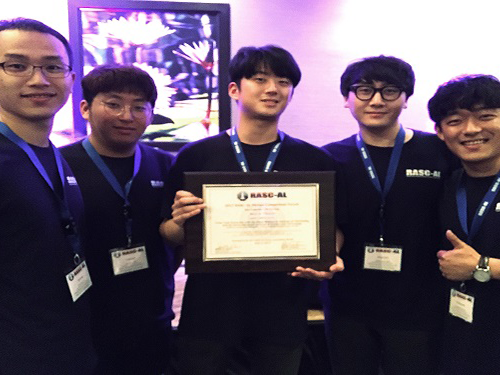 Winning Best in Theme Award in NASA RASC-AL
A students team from the Department of Aerospace Engineering won the Best in Theme Award for moon exploration system design at Revolutionary Aerospace Systems Concepts - Academic Linkage (RASC-AL), an aerospace mission system design competition organized by NASA in the USA.
The KAIST team, consisting of Jaeyoul Ko, Jongeun Suh, Juseong Lee, Sukmin Choi, and Eunkwang Lee, and supervised by Professor Jaemyung Ahn, competed as a joint team with Texas Tech University and the Royal Melbourne Institute of Technology in Australia,
The joint team was selected as one of the 14 finalists after two preliminary rounds. The finals of RASC-AL Forum took place from May 30 to June 3 in Florida. The team received the top prize with their design entitled ‘Earth to Lunar Interchangeable Transportation Environment (ELITE) for Logistics Delivery Systems’, one of the four themes of the competition.
Since 2002, RASC-AL competitions, managed by NASA, have been held with themes on innovative aerospace system and missions, in which world-class undergraduate and graduate students have participated.
This year’s themes were ▲ Lightweight Exercise Suite ▲ Airlock Design ▲ Commercially Enabled LEO/Mars Habitable Module and ▲ Logistics Delivery System.
Moon exploration requires a great deal of time and supplies. The KAIST team has been researching supply delivery systems in space for long-term manned moon exploration with their joint team for the last eight months. In particular, incidents can occur during the initial stages of long-term manned moon exploration missions that are unpredictable during system design and planning. Therefore, to cope with such unpredictability in the mission, the KAIST team deduced a system and an operational concept with increased flexibility to maximize the cost effectiveness of the supply transport.
The spacecraft was divided into propulsion and transport modules based on their functionalities, and can allow the flexibility by switching the transport module according to the demands of the moon base. The operational flexibility and cost effectiveness are further increased by introducing multiple departure orbits from the Earth (e.g. low Earth orbit vs. geosynchronous Earth orbit) enabled by utilization of various launch vehicles.
Professor Ahn, the advisor for the team, said, “I am proud of the students who collaborated with the international joint teams and achieved great result.” He continued, “I believe this to be the result of continuous efforts and initiatives of the department for system design-centered education. We will keep providing high-quality system design and education through various opportunities such as international cooperation in design education.”
(Photo caption: KAIST team of the Department of Aerospace Engineering poses after winning the Best in Theme Award in NASA's RASC-AL)
2017.06.22 View 10195
Winning Best in Theme Award in NASA RASC-AL
A students team from the Department of Aerospace Engineering won the Best in Theme Award for moon exploration system design at Revolutionary Aerospace Systems Concepts - Academic Linkage (RASC-AL), an aerospace mission system design competition organized by NASA in the USA.
The KAIST team, consisting of Jaeyoul Ko, Jongeun Suh, Juseong Lee, Sukmin Choi, and Eunkwang Lee, and supervised by Professor Jaemyung Ahn, competed as a joint team with Texas Tech University and the Royal Melbourne Institute of Technology in Australia,
The joint team was selected as one of the 14 finalists after two preliminary rounds. The finals of RASC-AL Forum took place from May 30 to June 3 in Florida. The team received the top prize with their design entitled ‘Earth to Lunar Interchangeable Transportation Environment (ELITE) for Logistics Delivery Systems’, one of the four themes of the competition.
Since 2002, RASC-AL competitions, managed by NASA, have been held with themes on innovative aerospace system and missions, in which world-class undergraduate and graduate students have participated.
This year’s themes were ▲ Lightweight Exercise Suite ▲ Airlock Design ▲ Commercially Enabled LEO/Mars Habitable Module and ▲ Logistics Delivery System.
Moon exploration requires a great deal of time and supplies. The KAIST team has been researching supply delivery systems in space for long-term manned moon exploration with their joint team for the last eight months. In particular, incidents can occur during the initial stages of long-term manned moon exploration missions that are unpredictable during system design and planning. Therefore, to cope with such unpredictability in the mission, the KAIST team deduced a system and an operational concept with increased flexibility to maximize the cost effectiveness of the supply transport.
The spacecraft was divided into propulsion and transport modules based on their functionalities, and can allow the flexibility by switching the transport module according to the demands of the moon base. The operational flexibility and cost effectiveness are further increased by introducing multiple departure orbits from the Earth (e.g. low Earth orbit vs. geosynchronous Earth orbit) enabled by utilization of various launch vehicles.
Professor Ahn, the advisor for the team, said, “I am proud of the students who collaborated with the international joint teams and achieved great result.” He continued, “I believe this to be the result of continuous efforts and initiatives of the department for system design-centered education. We will keep providing high-quality system design and education through various opportunities such as international cooperation in design education.”
(Photo caption: KAIST team of the Department of Aerospace Engineering poses after winning the Best in Theme Award in NASA's RASC-AL)
2017.06.22 View 10195 -
 Professor Lee Recognized by the KMS as Best Paper Awardee
Professor Ji Oon Lee of the Department of Mathematical Sciences was selected as the 2017 Best Paper Awardee by the Korean Mathematical Society. The award will be presented during the KMS spring meeting on April 29. Dr. Lee is being honored for proving a necessary and sufficient condition for the Tracy-Wisdom law of Wigner matrices. In a paper titled ‘A Necessary and Sufficient Condition for Edge Universality of Wigner Matrices,’ he proposed a solution for one of the many unanswered problems in the field of random matrix theory that have existed for decades. The paper, co-authored with Professor Jun Yin at the University of Wisconsin – Madison, was published in the Duke Mathematical Journal in 2014. Professor Lee joined KAIST in 2010 after finishing his Ph.D. at Harvard University. He was named a ‘POSCI Science Fellow’ and received the ‘Young Scientist Award’ from the KMS in 2014.
2017.04.27 View 10786
Professor Lee Recognized by the KMS as Best Paper Awardee
Professor Ji Oon Lee of the Department of Mathematical Sciences was selected as the 2017 Best Paper Awardee by the Korean Mathematical Society. The award will be presented during the KMS spring meeting on April 29. Dr. Lee is being honored for proving a necessary and sufficient condition for the Tracy-Wisdom law of Wigner matrices. In a paper titled ‘A Necessary and Sufficient Condition for Edge Universality of Wigner Matrices,’ he proposed a solution for one of the many unanswered problems in the field of random matrix theory that have existed for decades. The paper, co-authored with Professor Jun Yin at the University of Wisconsin – Madison, was published in the Duke Mathematical Journal in 2014. Professor Lee joined KAIST in 2010 after finishing his Ph.D. at Harvard University. He was named a ‘POSCI Science Fellow’ and received the ‘Young Scientist Award’ from the KMS in 2014.
2017.04.27 View 10786 -
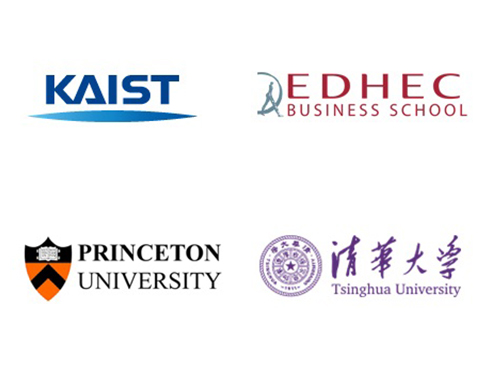 FinTech Conference by KAIST, EDHEC-Risk Institute, Princeton, and Tsinghua
KAIST will partner with EDHEC-Risk Institute, Princeton University, and Tsinghua University to host a series of annual rotation conference on FinTech. The inaugural conference will be held in Princeton on April 26 and is entitled ‘Four-University Rotating FinTech Conference: Wealth Management Systems for Individual Investors.’
The conference will facilitate discussion among all interest parties of academics, practitioners, and regulators from around the world. Professor Woo Chang Kim of the Department of Industrial & Systems Engineering will represent KAIST. Professor Kim is also the head of the Center for Wealth Management Technologies at KAIST.
In addition to Professor Kim, leading experts from the US, Asia, and Europe will present at the conference, including Andrew Yao (Turing Award recipient and founder of IIIS FinTech Center at Tsinghua University), John Bogle (founder of the Vanguard Group, and president of the Bogle Financial Markets Research Center), Lionel Martellini (director of EDHEC-Risk Institute), John Mashey (Bell Labs/Silicon Valley computer scientist/corporate executive), and John Mulvey (professor and founding member of the Bendheim Center for Finance at Princeton University).
This year’s conference will feature following sessions:
· Mass-Customization of Goal-Based Investment Solutions: The New Frontier in Digital Wealth Management Services
· Goal-Based Investment via Multi-Stage Stochastic Goal Programming for Robo-Advisor Services
· Big Data – Yesterday, Today and Tomorrow
· Applying Machine Learning Concepts for Asset Allocation and ALM
· FinTech: Drawing Strengths from Computing Theories
· Savings and Investing to Achieve Retirement Goals: An Update Given Current Market Assumptions · The Rise of Robo-Advisors: A Threat or an Opportunity for the Wealth Management Industry?
The conference will include the participation of official partner Samsung Asset Management.
2017.04.20 View 10421
FinTech Conference by KAIST, EDHEC-Risk Institute, Princeton, and Tsinghua
KAIST will partner with EDHEC-Risk Institute, Princeton University, and Tsinghua University to host a series of annual rotation conference on FinTech. The inaugural conference will be held in Princeton on April 26 and is entitled ‘Four-University Rotating FinTech Conference: Wealth Management Systems for Individual Investors.’
The conference will facilitate discussion among all interest parties of academics, practitioners, and regulators from around the world. Professor Woo Chang Kim of the Department of Industrial & Systems Engineering will represent KAIST. Professor Kim is also the head of the Center for Wealth Management Technologies at KAIST.
In addition to Professor Kim, leading experts from the US, Asia, and Europe will present at the conference, including Andrew Yao (Turing Award recipient and founder of IIIS FinTech Center at Tsinghua University), John Bogle (founder of the Vanguard Group, and president of the Bogle Financial Markets Research Center), Lionel Martellini (director of EDHEC-Risk Institute), John Mashey (Bell Labs/Silicon Valley computer scientist/corporate executive), and John Mulvey (professor and founding member of the Bendheim Center for Finance at Princeton University).
This year’s conference will feature following sessions:
· Mass-Customization of Goal-Based Investment Solutions: The New Frontier in Digital Wealth Management Services
· Goal-Based Investment via Multi-Stage Stochastic Goal Programming for Robo-Advisor Services
· Big Data – Yesterday, Today and Tomorrow
· Applying Machine Learning Concepts for Asset Allocation and ALM
· FinTech: Drawing Strengths from Computing Theories
· Savings and Investing to Achieve Retirement Goals: An Update Given Current Market Assumptions · The Rise of Robo-Advisors: A Threat or an Opportunity for the Wealth Management Industry?
The conference will include the participation of official partner Samsung Asset Management.
2017.04.20 View 10421 -
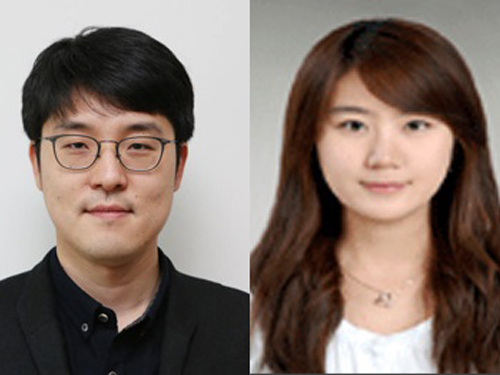 EEWS Graduate School Team Receives the S-Oil Best Paper Award
Professor Hyungjun Kim and Dr. He-Young Shin from the EEWS (Energy, Environment, Water and Sustainability) Graduate School at KAIST received the Best Paper Award in Chemistry from S-Oil, a Korean petroleum and refinery company, on November 29, 2016.
Established in 2011, the S-Oil Best Paper Awards are bestowed annually upon ten young scientists in the fields of five basic sciences: mathematics, physics, chemistry, biology, and earth science. The scientists are selected at the recommendation of the Korean Academy of Science and Technology and the Association of Korean Universities. The awards grant a total of USD 230,000 for research funding.
Dr. Shin, the lead author of the awarded research paper, said, “My research interest has been catalyst studies based on theoretical chemistry. I am pleased to accept this award that will support my studies, and will continue to research catalyst design that can predict parameters and integrate them into catalytic systems.”
Professor Hyungjun Kim (left) and Dr. He-Young Shin (right)
2016.12.23 View 11855
EEWS Graduate School Team Receives the S-Oil Best Paper Award
Professor Hyungjun Kim and Dr. He-Young Shin from the EEWS (Energy, Environment, Water and Sustainability) Graduate School at KAIST received the Best Paper Award in Chemistry from S-Oil, a Korean petroleum and refinery company, on November 29, 2016.
Established in 2011, the S-Oil Best Paper Awards are bestowed annually upon ten young scientists in the fields of five basic sciences: mathematics, physics, chemistry, biology, and earth science. The scientists are selected at the recommendation of the Korean Academy of Science and Technology and the Association of Korean Universities. The awards grant a total of USD 230,000 for research funding.
Dr. Shin, the lead author of the awarded research paper, said, “My research interest has been catalyst studies based on theoretical chemistry. I am pleased to accept this award that will support my studies, and will continue to research catalyst design that can predict parameters and integrate them into catalytic systems.”
Professor Hyungjun Kim (left) and Dr. He-Young Shin (right)
2016.12.23 View 11855 -
 Aerospace Engineering Students Win the Minister's Award
On November 11, 2016, students from KAIST’s Aerospace Engineering Department won the Minister’s Award of Trade, Industry and Energy of Korea at the 14th Research Paper Competition hosted by Korea Aerospace Industries (KAI). The award came with a cash prize of USD 1,200 as well as opportunities to visit international airshows held abroad.
The KAIST students' paper introduced a novel design concept for "a virtual-fighter-pilot system for unmanned combat aerial vehicles to enable them to engage in mass aerial combat."
This was one of the two highest honors given to contestants. A group of students from Korea Aerospace University received the other grand prize from the Minister of Land, Infrastructure and Transport of Korea.
The KAIST team consisted of two doctoral students, Hee-Min Shin and Jae-Hyun Lee, and one Master’s student, Hyun-Gi Kim. Their advisor, Professor “David” Hyunchul Shim, received the Special Achievement Award for his contribution to the paper.
KAI’s competition was established in 2003 to spur academic interest and research in aerospace engineering. Over the past 14 years, contestants have submitted 376 papers, and KAI has published 88 papers. KAI has positioned itself as the host of one of the most prestigious research paper competitions held in Korea in the area of aerospace engineering.
The Korean Society for Aeronautical and Space Sciences, the Korea Aerospace Industries Association, and the Korea Civil Aviation Development Association also sponsored the competition, with the Ministries of Trade, Industry and Energy and of Land, Infrastructure and Transport.
Professor Shim said, “This represents a great honor for our students. In recent years, research in unmanned aerial systems has increased tremendously throughout the world, and I hope KAIST will continue to inspire and innovate research in this field.”
Pictured from left to right are Hee-Min Shin, Jae-Hyun Lee, and Hyun-Gi Kim.
Pictured from right to left are Professor Hyunchul Shim, Hyun-Gi Kim, Hee-Min Shin, and Vice President Sung-Sup Chang of Korea Aerospace Industries.
2016.11.22 View 13233
Aerospace Engineering Students Win the Minister's Award
On November 11, 2016, students from KAIST’s Aerospace Engineering Department won the Minister’s Award of Trade, Industry and Energy of Korea at the 14th Research Paper Competition hosted by Korea Aerospace Industries (KAI). The award came with a cash prize of USD 1,200 as well as opportunities to visit international airshows held abroad.
The KAIST students' paper introduced a novel design concept for "a virtual-fighter-pilot system for unmanned combat aerial vehicles to enable them to engage in mass aerial combat."
This was one of the two highest honors given to contestants. A group of students from Korea Aerospace University received the other grand prize from the Minister of Land, Infrastructure and Transport of Korea.
The KAIST team consisted of two doctoral students, Hee-Min Shin and Jae-Hyun Lee, and one Master’s student, Hyun-Gi Kim. Their advisor, Professor “David” Hyunchul Shim, received the Special Achievement Award for his contribution to the paper.
KAI’s competition was established in 2003 to spur academic interest and research in aerospace engineering. Over the past 14 years, contestants have submitted 376 papers, and KAI has published 88 papers. KAI has positioned itself as the host of one of the most prestigious research paper competitions held in Korea in the area of aerospace engineering.
The Korean Society for Aeronautical and Space Sciences, the Korea Aerospace Industries Association, and the Korea Civil Aviation Development Association also sponsored the competition, with the Ministries of Trade, Industry and Energy and of Land, Infrastructure and Transport.
Professor Shim said, “This represents a great honor for our students. In recent years, research in unmanned aerial systems has increased tremendously throughout the world, and I hope KAIST will continue to inspire and innovate research in this field.”
Pictured from left to right are Hee-Min Shin, Jae-Hyun Lee, and Hyun-Gi Kim.
Pictured from right to left are Professor Hyunchul Shim, Hyun-Gi Kim, Hee-Min Shin, and Vice President Sung-Sup Chang of Korea Aerospace Industries.
2016.11.22 View 13233 -
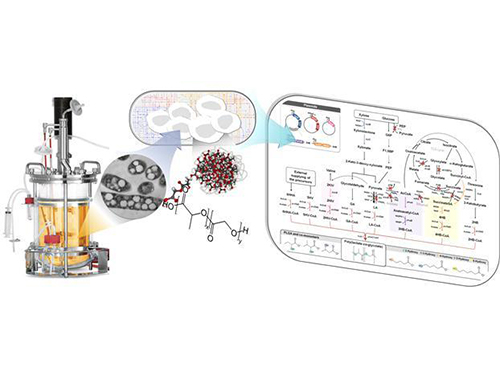 Top 10 Emerging Technologies by World Economic Forum
The World Economic Forum’s Meta-Council on Emerging Technologies announced its annual list of breakthrough technologies, the “Top 10 Emerging Technologies of 2016,” on June 23, 2016. The Meta-Council chose the top ten technologies based on the technologies’ potential to improve lives, transform industries, and safeguard the planet. The research field of systems metabolic engineering, founded by Distinguished Professor Sang Yup Lee of the Chemical and Biomolecular Engineering Department at KAIST, was also citied. Systems metabolic engineering, which combines elements of synthetic biology, systems biology, and evolutionary engineering, offers a sustainable process for the production of useful chemicals in an environmentally friendly way from plants such as inedible biomass, reducing the need of using fossil fuels. Details about the list follow below:
https://www.weforum.org/press/2016/06/battery-powered-villages-sociable-robots-rank-among-top-10-emerging-technologies-of-2016
The picture below shows the “systems metabolic engineering of E. coli for the production of PLGA." PLGA is poly(lactate-co-glycolate), which is widely used for biomedical applications, and has been made by chemical synthesis. Now it is possible to produce PLGA eco-friendly by one-step fermentation of a gut bacterium which is developed through systems metabolic engineering.
2016.06.27 View 12252
Top 10 Emerging Technologies by World Economic Forum
The World Economic Forum’s Meta-Council on Emerging Technologies announced its annual list of breakthrough technologies, the “Top 10 Emerging Technologies of 2016,” on June 23, 2016. The Meta-Council chose the top ten technologies based on the technologies’ potential to improve lives, transform industries, and safeguard the planet. The research field of systems metabolic engineering, founded by Distinguished Professor Sang Yup Lee of the Chemical and Biomolecular Engineering Department at KAIST, was also citied. Systems metabolic engineering, which combines elements of synthetic biology, systems biology, and evolutionary engineering, offers a sustainable process for the production of useful chemicals in an environmentally friendly way from plants such as inedible biomass, reducing the need of using fossil fuels. Details about the list follow below:
https://www.weforum.org/press/2016/06/battery-powered-villages-sociable-robots-rank-among-top-10-emerging-technologies-of-2016
The picture below shows the “systems metabolic engineering of E. coli for the production of PLGA." PLGA is poly(lactate-co-glycolate), which is widely used for biomedical applications, and has been made by chemical synthesis. Now it is possible to produce PLGA eco-friendly by one-step fermentation of a gut bacterium which is developed through systems metabolic engineering.
2016.06.27 View 12252